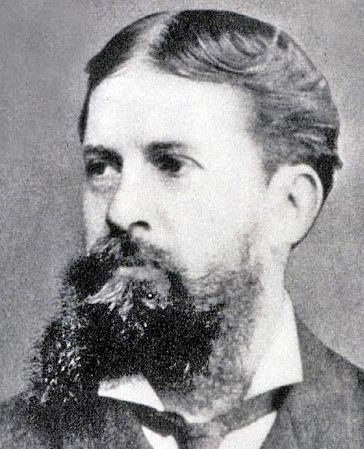-
(b.) -1839 September 10(d.)1914 April 19
Bio/Description
An American philosopher, logician, mathematician, and scientist, born in Cambridge, Massachusetts, he was educated as a chemist and employed as a scientist for 30 years. Today he is appreciated largely for his contributions to logic, mathematics, philosophy, and semiotics, and for his founding of pragmatism. In 1934, the philosopher Paul Weiss called him, "the most original and versatile of American philosophers and America's greatest logician". An innovator in mathematics, statistics, philosophy, research methodology, and various sciences, he considered himself a logician first and foremost. He made major contributions to logic, but logic for him encompassed much of that which is now called epistemology and philosophy of science. He saw logic as the formal branch of semiotics, which he is a founder; which is the study of signs and sign processes (semiosis), indication, designation, likeness, analogy, metaphor, symbolism, signification, and communication. As early as 1886 he saw that logical operations could be carried out by electrical switching circuits, the same idea as was used decades later to produce digital computers. At 12 years of age, he read an older brother's copy of Richard Whately's Elements of Logic, then the leading English-language text on the subject. Thus began his lifelong fascination with logic and reasoning. He went on to obtain the BA and MA from Harvard; in 1863 the Lawrence Scientific School awarded him a B.Sc. that was Harvard's first summa cum laude chemistry degree; and otherwise his academic record was undistinguished. At Harvard, he began lifelong friendships with Francis Ellingwood Abbot, Chauncey Wright, and William James. One of his Harvard instructors, Charles William Eliot, formed an unfavorable opinion of him which proved fateful, because Eliot, while President of Harvard 1869?1909?repeatedly vetoed Harvard's employing him in any capacity. Between 1859 and 1891, he was intermittently employed in various scientific capacities by the United States Coast Survey where he worked mainly in geodesy and gravimetry, refining the use of pendulums to determine small local variations in the strength of Earth's gravity. He was elected a resident fellow of the American Academy of Arts and Sciences in January 1867. The Survey sent him to Europe five times, first in 1871, as part of a group sent to observe a solar eclipse; while there, he sought out Augustus De Morgan, William Stanley Jevons, and William Kingdon Clifford, British mathematicians and logicians whose turn of mind resembled his own. From 1869 to 1872, he was employed as an Assistant in Harvard's astronomical observatory, doing important work on determining the brightness of stars and the shape of the Milky Way. On April 20, 1877 he was elected a member of the National Academy of Sciences. Also in 1877, he proposed measuring the meter as so many wavelengths of light of a certain frequency, the kind of definition employed from 1960 to 1983. In 1879, he was appointed Lecturer in logic at the new Johns Hopkins University, and 1883 saw publication of his Studies in Logic by Members of the Johns Hopkins University containing works by himself and Allan Marquand, Christine Ladd, Benjamin Ives Gilman, and Oscar Howard Mitchell. They were among his graduate students. This nontenured position proved to be the only academic appointment he ever held. During the 1880s, his indifference to bureaucratic detail waxed while his Survey work's quality and timeliness waned. He took years to write reports that he should have completed in months. Meanwhile, he wrote entries, ultimately thousands during 1883?1909, on philosophy, logic, science, and other subjects for the encyclopedic Century Dictionary. In 1885, an investigation by the Allison Commission exonerated him, but led to the dismissal of Superintendent Julius Hilgard and several other Coast Survey employees for misuse of public funds. In 1891, Peirce resigned from the Coast Survey at Superintendent Thomas Corwin Mendenhall's request. He never again held regular employment.
-
Date of Birth:
1839 September 10 -
Date of Death:
1914 April 19 -
Gender:
Male -
Noted For:
He saw that logical operations could be carried out by electrical switching circuits, the same idea as was used decades later to produce digital computers -
Category of Achievement:
-
More Info:


